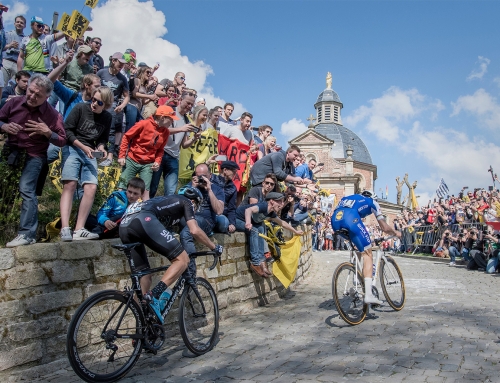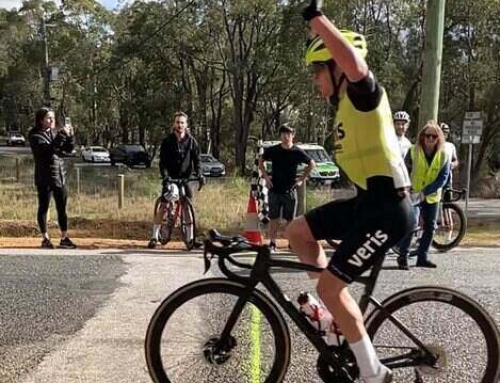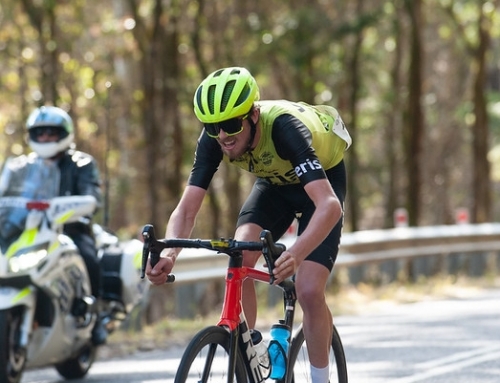Sports Director Update: April
Veris Racing in 2021 has made a concerted effort to recruit more of Australis best developing talent. By this we mean focusing on under 19 and under 23 aged athletes to best prepare them for the futures of elite sport competition. To this end, we have actively tried to enlist younger athletes in the hope of developing them for the rigours of elite sports. This is also reflected in the launching of our Junior Cycling Academy recently which see’s athletes as young as 10 years of age commence more formal training practices designed to prepare them for elite sport from a very early age.
All athletes within the Veris Racing program are coached and developed internally via close working relationship with racing manager Brad Hall. This allows the team to make decisions based on performance metrics only viewable through a coach/athlete relationship: such as power output, fatigue measures, and perceptual feedback around each athlete’s experience.
These systems replicate those found at a World Tour level of cycling performance management.
Brad uses a blend of scientific based coaching principles drawing from his Sports Psychology and Sports Science degrees and draws from a wealth of experience in elite level racing spanning almost 20yrs. The point being, that the team can equally celebrate outcome based performance, like victories and placing’s, as well as reward personal achievements such as power outputs and personal bests within the coaching model. This reflects best practice principles and also Brad’s own desire to work in applied settings with motivated and engaged athletes.
Turning now to actual racing, Veris Racing athletes have been busy this first quarter, dodging covid and attending a raft of racing events around Australia.
- Most recently Oliver Bleddyn won silver at the Australian Track Cycling Championships, with Dharlia Haines also attending, both a first year senior riders, thus showcasing their immense talent for future performances.
- Nicole Mitsigeorgis won the South Australian women’s open time trial championships; with Chelsea Symonds winning the U19 women’s category, both showing very strong performances on a super hilly course.
- Amelia Trkulja finished 4th in the Australian Criterium championships in February, with Matthew Connan finishing 3rd in the Time Trial event. Both athletes are just starting their careers in elite open sport with their future already looking very bright
- Kirsty Deacon, one of our senior athletes, won the most aggressive rider jersey on a stage in the Santos Tur Down Under after a long range attack lasting most of the stage. True to Kirsty’s tenacious nature the jersey reflects what many of us know about Kirsty’s attitude to racing in general being quite forthright and aggressive.
- Several of the NSW athlete group have been racing consistently and attaining podiums and wins at local races, with Tahlia Dole winning one of these races held just after the National Championships in February.
- Byron Woods has now won 7 local criteriums in a row in rural Victoria. Byron lives in a remote town of Nathalia and does 90% of his riding each week solo on flat roads around his town. Accumulating average training weeks of between 15-25hrs is the norm for Byron, with all this training done in complete isolation to others.
- State Track Championships saw Rebecca Wheadon again rally first place as state champion, with Matthew Connan also featuring on the top step in the Criterium event more recently.
- Stephanie Corset- 3rd QLD state criterium championships
- Grace Makeham- 2nd NSW state criterium championships
Beyond racing, most of the athlete’s work, and that of the coaching staff lies in the monitoring and implementation of training. Training for Veris Racing athletes sees a rolling weekly training average of 17.5hrs a week attained, with some of the senior riders yielding training hours closer to 25 even 30 hours a week.
Through this process we are able to review power files generated from the worlds most reliable and accurate power meter device in the Verve Infocrank and therefore have a clear insight into how athletes are travelling even when they reside some 5000kms away. Indeed we have athletes from New Zealand, Victoria, New South Wales, Queensland, & South Australia, so the need for accurate remote monitoring is high and can only be done with quality equipment.
To this end we have seen strong correlations with the total training volume, and quality of training practiced with peak power measures over time. Several of our athletes have recently posted their highest power outputs over different durations: Lucie Fityus, Chloe Heffernan, Brendon Green, Byron Woods, with all of these outcomes coming in the last week or so.
The importance of this form of monitoring is critical to all human development in that it demonstrates the capability of the individual to exceed independent of racing outcomes or results.




